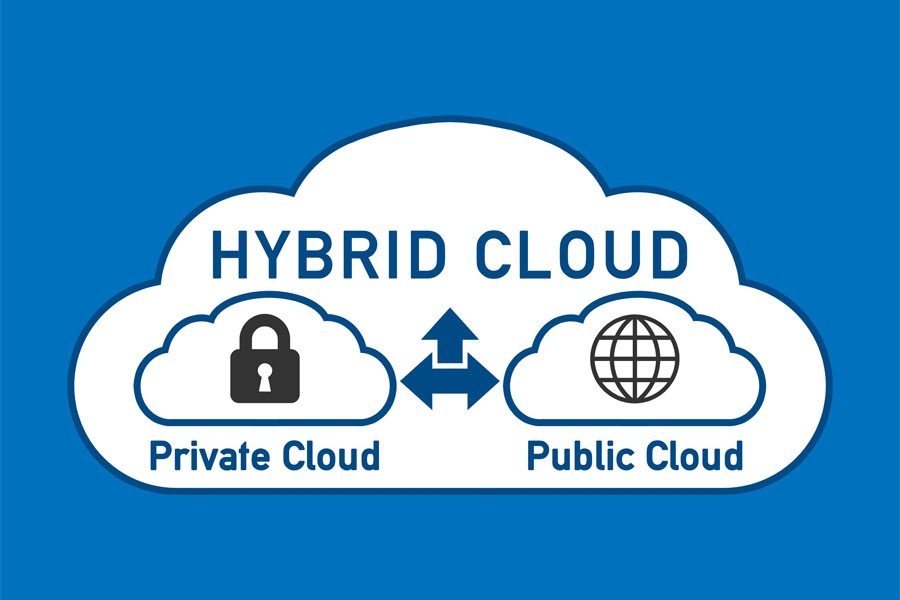As the name indicates, it is the functional combination of both public and private clouds. A public cloud like Microsoft Azure leverages the shared chunks of networking infrastructure, computing and its storage which are rented on a specific time basis for the customers. A private cloud comes with the same components but will be restricted to the single customer. Functionally, there is not much difference between private and public clouds. The only difference is that private cloud is not shared and perceived to be more secure.
In practice, hybrid cloud amalgamates the best qualities of both private and public clouds. Confidential data which is vulnerable could be stored in private cloud and the less-sensitive information will be run on the remote cloud. This selectivity has pushed the financial and healthcare sectors to gain faith in it.
What are Its Advantages?
Capacity expansion
There is high incremental cost of adding capacity on-premises (upgrading power and cooling in a data center to accommodate additional racks or building a whole new data center) a hybrid approach is a viable alternative.
Planned temporary need
Most of the time organizations know most of their needs in advance. Examples: new product launches, peak season etc. Most of the time the applications can be scaled but how to accommodate hardware scaling on temporarily basis? This problem can be solved by scaling the workload to the hosted cloud and paying for what you need when you use it, turning a large capital expense into a smaller operational expense.
Network Optimization
Not being pushed through the public internet. This greatly reduces access time and latency in comparison to public cloud services. Hosted cloud provides the opportunity to shift the heavy lifting of the network off-premises and, in the process, improves the availability, scalability and reliability of the connection by leveraging the provider’s network investment.
Effective workload management
Ability to have on-premises computational infrastructure that can support the average workload for the business, while retaining the ability to leverage the public cloud for failover circumstances in which the workload exceeds the computational power of the private cloud component.

But like all approaches to cloud storage and data analytics, hybrid computing has a number of disadvantages. Here are some of the challenges that arise when using a hybrid cloud mode
Cost
While the public cloud can offer an attractive option for its flexibility and relatively low cost to operate, building a private enterprise cloud requires significant expenditure and can become expensive very quickly with all the physical hardware necessary.
Security
Cloud computing is not inherently any less secure than traditional computing, and in fact faces fewer attacks, but there are still considerations to take into account when building out a hybrid cloud. Proper precautions must be taken to ensure data is properly protected and that control is maintained by the right people. Additionally, depending on the industry, there may be certain regulatory requirements that prohibit data from being stored off-site, which would prevent the use of a public cloud entirely.
Compatibility
Compatibility across infrastructure can prove itself to be a major issue when building a hybrid cloud. With dual levels of infrastructure, a private cloud the company controls and a public one that it doesn’t, the chances are that they will be running different stacks.
Networking
Will very active applications be living in the cloud? It’s necessary to consider the bandwidth usage they could take up on the network and whether or not it could cause problems in bottlenecking other applications.
